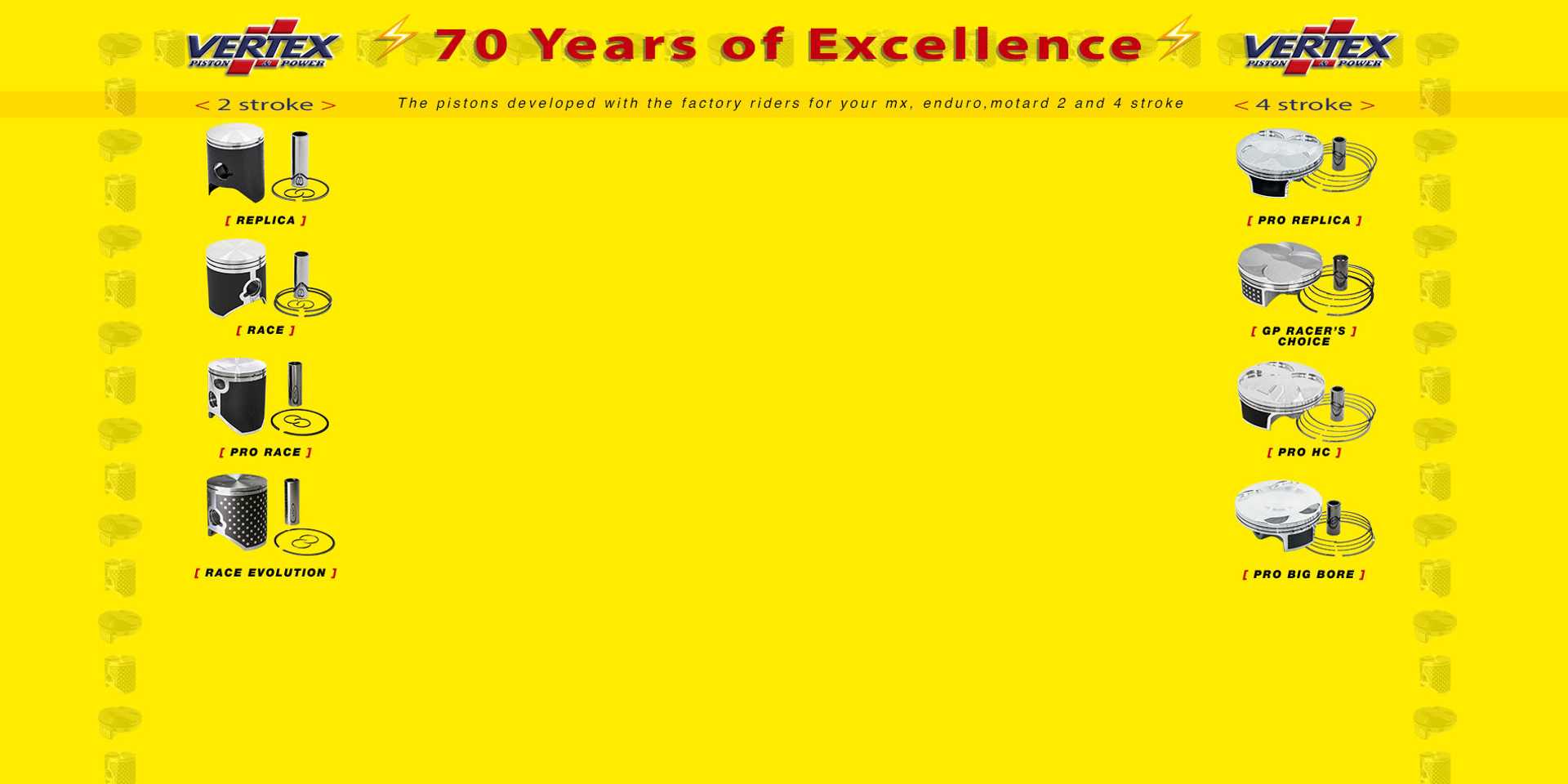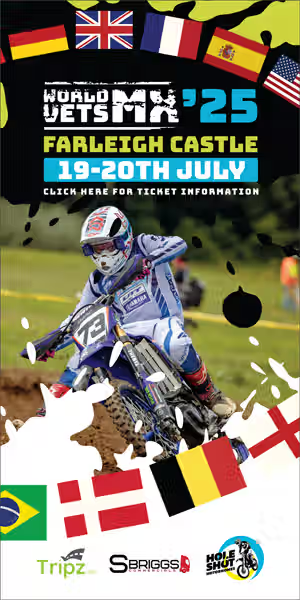Rob Herring Interview - World Vets
Rob Herring is a name that fits nicely in the list of riders whose technical skills are considered above the majority of World classed riders. Similar to a Jean Michel Bayle, Jett Lawrence, Kevin Windham or Stefan Everts, Herring was beautiful to watch and while he never reached the hights of the names mentioned, he did have break-out performances in his career.
Herring began his racing career in South Africa after his father emigrated there from the United Kingdom. He returned to the U.K. at the age of 17 and won 11 British motocross national championships. He also competed in the F.I.M. motocross world championship. He competed in the 250-world championship from 1987 to 1998, winning 3 GPs and 9 motos, and also did the 500cc championship in 1999.
Not only a winner of the 1994 MXdN with Paul Malin and Kurt Nicoll, the modest rider from a South African background, but a true blue Brit, beat names like Jeff Ward in supercross and his 1988 performance at the 1988 Motocross des Nations in France showed the World what a talent he was.
In that 88 Nations, Herring finished a stunning second in the final moto of the day, losing only to Ron Lechien and beating riders like Rick Johnson, Jeff Leisk, Hakan Carlqvist and many more. In the opening moto in France, he also beat Team USA rider, Jeff Ward. While that 1988 event was one of the special performances by Herring, he had many similar days.
We caught up with Herring and wanted to talk about his career, but also the fact this special talent will be racing at the WorldVetsMotocross.com event at Farleigh Castle on July 18, 19 and 20. Returning to Farleigh, a circuit that saw him show so many fine performances.
MXlarge: What are you up to now with life after motocross?
Herring: I do camera bike work in the movies. I have been doing it for like 20 years.
MXLarge: Tell me, I remember going to the 1987 Motocross des Nations at Unadilla and coming from Australia, I didn’t really know that many of the GP riders, because in Australia, we generally followed AMA racing. I remember on the Saturday, before the rain came, you and Ricky Johnson really stood out, you had such a beautiful riding style. You must get a lot of that, people reminding you of when you raced and how good you looked?
Herring: I think, when I first came back to the UK, my style was a bit Americanized, because riding in South Africa and I also followed the American racing, rather than the European racing. I got a lot of compliments for my style, because it was so different and not what they were used to. I used to read a lot of magazines with Gary Bailey riding techniques, and I based my style on what I was looking at there. I always nice comments about how I rode.
MXLarge: You also always looked pretty cool, your riding gear. Did you do that on purpose, or it just happened that way?
Herring: I never made the attempt to. In 1987 and 88 we had the Apico gear, and I would get my helmet painted, those were always my designs and my idea’s, but gear was always down to the sponsors. I think things just worked out like that. I always had nice gear and maybe the sponsors wanted the gear to suit my style.
MXlarge: Speaking to a friend of mine this morning, Gary Freeman and he has been around forever and mentioned how you were the most talented rider he ever saw ride. Also, Paul Malin had a great style. Why do you think your technique didn’t get the results if could have?
Herring: My ability on the bike, I spent so much time riding in South Africa. It was so open, and you had so much freedom then. Although I looked natural on the bike, that came from a lot of time spent on the bike. These days you have Aldon Baker, Millsaps and all these training programs. That was my training, riding the bike and when I came back to the UK, I couldn’t ride the bike as much as I did in South Africa. I had to make up for that with training, but because I was kind of lazy and nobody said to me, this is the training program we need to do. I would take a run down the road, feel tired and go home. I didn’t know any better and these days kids have a training program, and they are monitored. You either had the strong work ethic, which people like Kurt Nicoll, Dave Thorpe, Eric Geboers had, or you didn’t. I didn’t come from that type of background; I came from having fun play riding on my bike. I knew my bike like the back of my hand. What it could do, what I could do, but I didn’t have the work ethic. I think my career was let down, because I didn’t have it. As soon as the track got gnarly, where I didn’t have that 20% in me, that would let me down. My dad brought me up with first place is everything and second place is nothing, so I thought I always had to win and sometimes I would try and get to the front on the first lap, and I would crash. I didn’t think I needed to pick up as many points as I could, just rack up points. I spent so much time on the floor, because I would try and go flat out and if I was fitter, it would have been okay, but I wasn’t. I spent so much time early in my career crashing. That is where I let myself down.
MXLarge: Obviously, when I think about your career, the French des Nations in 1988. What events stood out for you?
Herring: That one in 88, especially the second moto, which was a stand-out. My first Grand Prix win in Yugoslavia in 1987. I had done one GP in 1986 and in 1987, nobody knew who I was. The 1990 des Nations at Vimmerby in Sweden, I also did well there, winning the second 125cc moto. I came from seventh or eight and won.
MXlarge: I also remember you racing many supercross races and being pretty good, from memory you won a major International supercross in the UK or not?
Herring: Yes, I raced Bercy a lot, was third in the 125cc class one year in 1989 or 90 and also did well in 1991. I won heat races or semi’s there but never got top three in the 250 class. At the Belle Vue I won the second or third night and finished second to Jeff Ward on the first night and won the second night.
MXLarge: The way GP guys are now technically really good, and it seems it is more open for GP riders heading to America to do supercross, is that something you wish you had done, because you were a good supercross rider?
Herring: Yes, definitely. It would have suited my style, and I did have an offer at the end of 1987 with Yamaha US, but no Euros were going to the US back then and the team didn’t think that the American fans would like a European rider racing there then. They took Micky Dymond instead of me. They changed their mind at the last minute. That was for the 1988 season. I really wanted to go, but I wanted to go to the US and if the offer had come about, I would have gone for sure, and it would have suited me, because those tracks suited my style more. In Europe, as soon as a track had something technical, they clerk of the course would take it out, because most of the riders couldn’t do it and they thought it was dangerous. Rather than think the riders should up their ability, the allowed the riders techniques to stay the same. It meant I also didn’t get better, because the tracks were not technical, like in the US.
MXLarge: You are racing at the WorldVetsMotocross.com event, right?
Herring: Yes, its modern bikes and I don’t want to ride the old bikes anymore. I raced my 500 last year and it destroyed me. My back cannot cope anymore with the old bikes. I am in the over 50’s with Dobber, Emig and all the bigger boys. I am looking forward to it. I raced British championships there, but never a GP, because it was always Foxhill. What a great track Farleigh is, a legendary track.
MXlarge: Catching up with old friends is a highlight I am told at the Farleigh event?
Herring: Yes, its brilliant. I did the World vets and it’s such a nice atmosphere and just watching is really fun. The run the modern bikes and the old bikes and watching Doug Henry racing, which was for the highlight of the weekend. I thoroughly enjoyed it.
For tickets for the event go to: Spectators - World Vets Motocross








